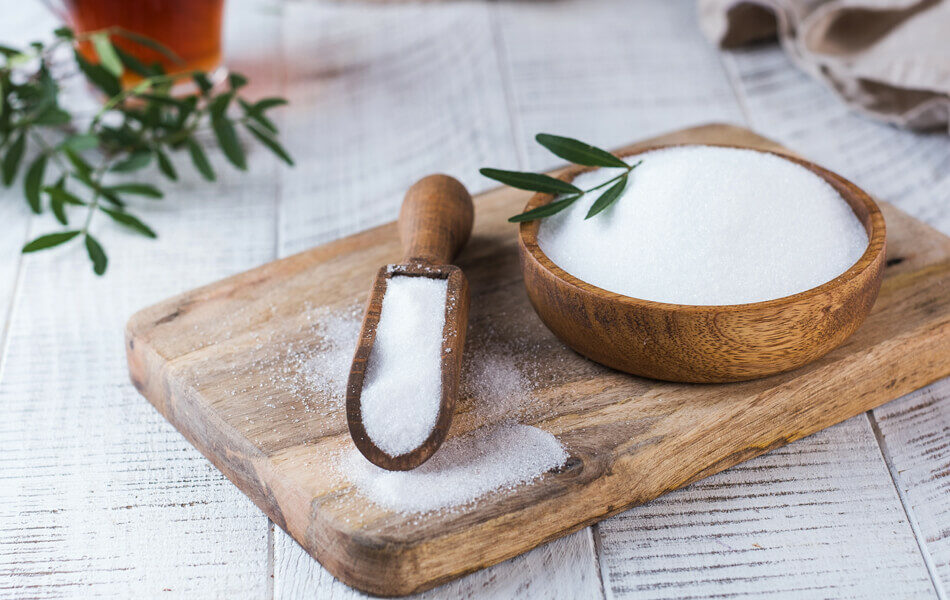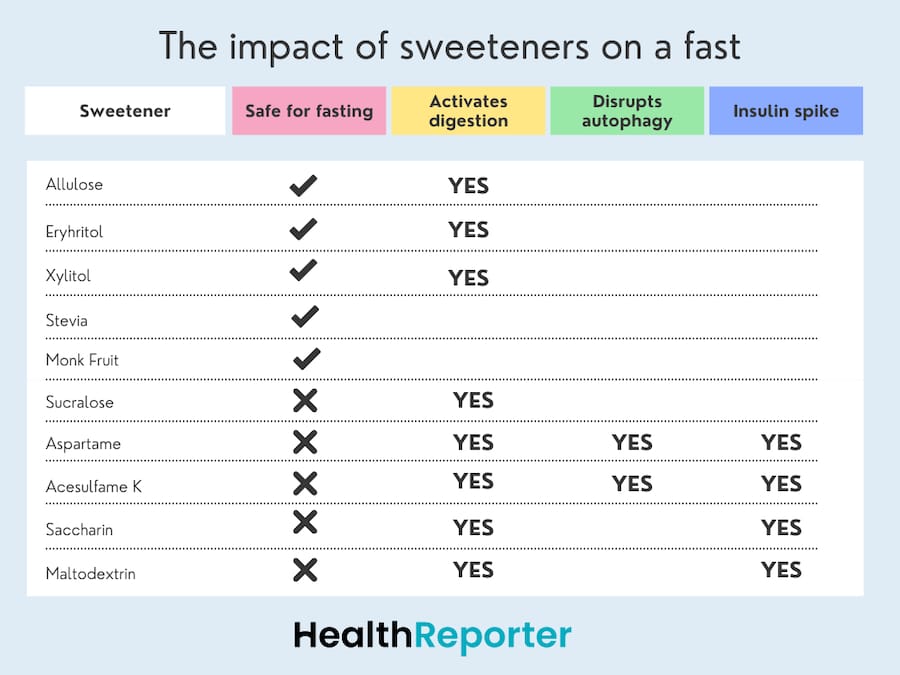Does Stevia Break a Fast? The Sweet Truth

When you’re practicing intermittent fasting, it can be hard to know exactly what you can and can’t have during your fasting window. Stevia is one of the many artificial sweeteners that people who are on low sugar diets tend to favor for flavor.
But does stevia break a fast? We took a deep dive into the world of artificial sweeteners to get all the answers that you need about stevia and fasting.
Does Stevia Break a Fast?
Stevia has no carbohydrates and no calories. When you use stevia in order to soothe your sweet tooth, then you’re not in any danger of breaking your fast during intermittent fasting.
If you’re fasting for weight loss or metabolic health benefits, then stevia is one of the best natural sweeteners to use. Stevia also has been known to improve insulin response and blood sugar levels.
If you’re fasting for gut health, stevia is not digested or absorbed through the GI tract.
No matter what reason you’re intermittent fasting, stevia is a safe, natural sweetener to use during your fasting window.
If you’re looking for a way to find out what other things you can eat while you’re figuring out our fasting method, we suggest an intermittent fasting app.
What Is Stevia?
Stevia is a sugar substitute that is made out of the leaves of the plant by the same name. It’s a very popular sweetener because it has about 100–300 times the sweetness of table sugar but without any of the carbohydrates, calories, or other artificial ingredients.
Is Stevia an Artificial Sweetener?
Stevia is an “artificial sweetener” in the sense that it’s often lumped into a group of non-sugar sweeteners. But in actuality, stevia is a completely natural sweetener. In other parts of the world, like South America and Asia, people have been using purified stevia extracts as a sweetener for centuries.
Stevia is made from the stevia plant, which is related to popular plants that you might otherwise find in your garden, like chrysanthemums. You can often find stevia in the baking aisle in any grocery store, and it’s often found in powdered form.
How Much Stevia Can I Use?
The acceptable daily serving of stevia is 4mg of stevia per kilogram of body weight. This means that if you weigh 150 pounds, you could very easily eat 10 packets of stevia a day without any adverse effects.
Of course, you probably don’t want to do that, if only because stevia has such an intensely sweet taste!
Do Other Natural Sweeteners Break a Fast?
No, most natural sweeteners will not break a fast, but this is not necessarily true across the board. Natural and artificial sweeteners are all the rage when it comes to replacing traditional sugar. And while stevia doesn’t break a fast, what about other natural sweeteners?

Erythritol
Erythritol is one of the common sugar alcohols. The calories per gram are almost negligible, which wouldn’t break a fast in that way. However, if you’re using intermittent fasting as a way to improve gut health, erythritol does, in fact, break your fast, as it stimulates the digestive tract.
Monk fruit
Monk fruit is another common natural sweetener. Much like stevia, monk fruit doesn’t break a fast when it comes to weight loss, but unlike stevia, if you’re practicing intermittent fasting for gut health, then you might want to avoid it, as it activates the digestive system.
Xylitol
Xylitol has more calories than both erythritol and stevia, which may break your intermittent fasting if you eat too much of it. Also, much like erythritol, xylitol is likely to break your fast in that it stimulates your GI tract.
Sweeteners You Should Avoid While Fasting
Nutritive sugars are sugar substitutes many people use in place of sugar, either for health or taste reasons.
These nutritive sugars include things like:
- Table sugar
- Honey
- Coconut sugar
- Agave
- Maple syrup
- Corn syrup
However, ultimately, your body processes all of this as regular sugar and will definitely break your fast.
A Word From Our RD
Learning exactly what you can and can’t use while you’re fasting can certainly be daunting! Especially when manufacturers often want you to buy their products, the information you need has a chance of being hidden.
Natural sweeteners are a great way to replace your sugar intake without breaking your fast, but it’s important to know why exactly you’re fasting. Some sweeteners are perfectly acceptable if you’re just fasting for losing weight, but others might cause you trouble if you’re on gut rest.
Even if you’re not practicing intermittent fasting, stevia is also a great sugar replacement for other diets, like a ketogenic diet. Stevia doesn’t inhibit ketosis, so you can enjoy it all you like.
Ultimately, you know your body and your fasting needs best. Stevia products are a great go-to for sugar substitute sweeteners, but some people don’t like the taste. If you’re fond of another natural sugar replacement, then go for it!
Conclusion
So, will stevia break a fast? The answer is no! Stevia is a much better alternative than sucrose and sugar alcohols when it comes to making a sweetener choice during intermittent fasting. If you’re looking to lose weight, stevia has zero calories and no carbs.
Stevia is also incredibly safe to use. You can have a lot of stevia without causing any health concerns. It won’t increase blood sugar levels, and it has even been known to improve your glycemic control. Enjoy stevia every day with your morning coffee or with your lemonade.
All in all, stevia is one of the best sweeteners to use in place of sugar – both in and out of intermittent fasting!

















































 Select your language:
Select your language: 








